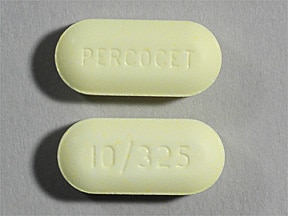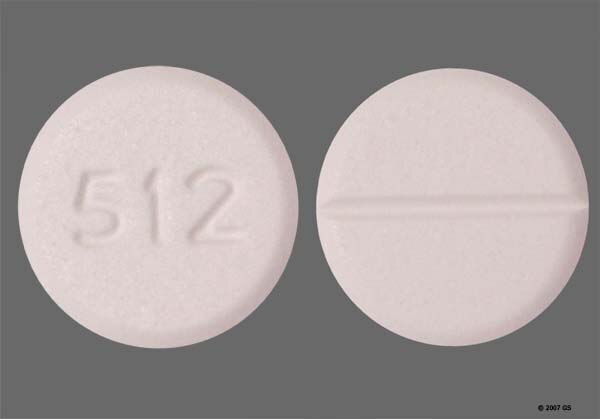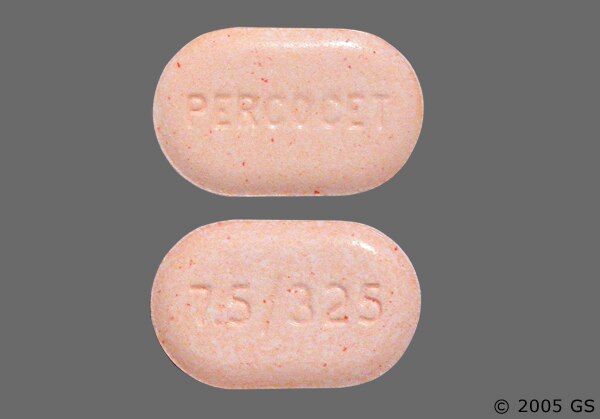Percocet 7.5 price - Report Abuse
Ask your doctor or pharmacist about using oxycodone safely with other drugs. This medication may cause withdrawal reactions, especially if it has been used regularly for a long time or in high doses.
In such cases, withdrawal symptoms such as restlessness, watering eyes , runny nose , nausea, sweating , muscle aches may occur if you suddenly stop using this medication. To prevent withdrawal reactions, your doctor may reduce your dose gradually. Ask your doctor or pharmacist for more details, and report any withdrawal reactions right away.
When this medication is used for a long time, it may not work as well. Talk with your doctor if this medication stops working well. Though it helps many people, this medication may sometimes cause addiction. Take this medication exactly as prescribed to lower the risk of addiction. Ask your doctor or pharmacist for more details.
Tell your doctor if your pain persists or worsens. Side Effects See also Warning section. Nausea , vomiting , constipation , lightheadedness , dizziness , or drowsiness may occur. Some of these side effects may decrease after you have been using this medication for a while.
If any of these effects persist or worsen, tell your doctor or pharmacist promptly. To prevent constipation , eat a diet adequate in fiber, drink plenty of water, and exercise. Consult your pharmacist for help in selecting a laxative such as a stimulant type with stool softener. To reduce the risk of dizziness and lightheadedness, get up slowly when rising from a sitting or lying position. Remember that your doctor has prescribed this medication because he or she has judged that the benefit to you is greater than the risk of side effects.
Many people using this medication do not have serious side effects. Tell your doctor right away if you have any serious side effects, including: Get medical help right away if you have any very serious side effects, including: A very serious allergic reaction to this drug is rare. However, get medical help right away if you notice any symptoms of a serious allergic reaction , including: This is not a complete list of possible side effects. If you notice other effects not listed above, contact your doctor or pharmacist.
In the US - Call your doctor for medical advice about side effects. In Canada - Call your doctor for medical advice about side effects. You may report side effects to Health Canada at Precautions See also Warning section. Before taking this medication , tell your doctor or pharmacist if you are allergic to it; or to other opioids such as morphine , codeine, oxymorphone ; or if you have any other allergies.
This product may contain inactive ingredients, which can cause allergic reactions or other problems. Do not use this medication without telling your doctor if you are breast-feeding a baby.
How should I take acetaminophen and oxycodone? Take this medication exactly as it was prescribed for you. Do not take it in larger amounts, or use it for longer than recommended by your doctor.
Follow the directions on your prescription label. Tell your doctor if the medicine seems to stop working as well in relieving your pain. An overdose of acetaminophen can cause serious harm to your liver. The maximum amount of acetaminophen for adults is 1 gram mg per dose and 4 grams mg per day. One acetaminophen and oxycodone tablet may contain up to mg of acetaminophen.
Know the amount of acetaminophen in the specific product you are taking. Measure the liquid form of this medication with a special dose-measuring spoon or cup, not a regular table spoon. If you do not have a dose-measuring device, ask your pharmacist where you can get one.
Drink 6 to 8 full glasses of water daily to help prevent constipation while you are taking acetaminophen and oxycodone. Do not use a stool softener laxative without first asking your doctor.
You may have withdrawal symptoms when you stop using acetaminophen and oxycodone after using it over a long period of time. Do not stop using this medication suddenly without first talking to your doctor. You may need to use less and less before you stop the medication completely. This medication can cause you to have unusual results with certain urine tests.
Tell any doctor who treats you that you are using acetaminophen and oxycodone. If you need to have any type of surgery, tell the surgeon ahead of time that you are using acetaminophen and oxycodone. You may need to stop using the medicine for a short time.
Store acetaminophen and oxycodone at room temperature away from moisture and heat. Keep track of how many tablets have been used from each new bottle of this medicine. Oxycodone is a drug of abuse and you should be aware if any person in the household is using this medicine improperly or without a prescription. What happens if I miss a dose? Since acetaminophen and oxycodone is taken as needed, you may not be on a dosing schedule.
If you are taking the medication regularly, take the missed dose as soon as you remember. If it is almost time for the next dose, skip the missed dose and wait until your next regularly scheduled dose. The respiratory depressant effects of opioids include carbon dioxide retention and secondary elevation of cerebrospinal fluid pressure, and may be markedly exaggerated in the presence of head injury, other intracranial lesions or a pre-existing increase in intracranial pressure.
Oxycodone produces effects on pupillary response and consciousness which may obscure neurologic signs of worsening in patients with head injuries. Oxycodone may cause severe hypotension particularly in individuals whose ability to maintain blood pressure has been compromised by a depleted blood volume, or after concurrent administration with drugs which compromise vasomotor tone such as phenothiazines. Oxycodone, like all opioid analgesics of the morphine-type, should be administered with caution to patients in circulatory shock, since vasodilation produced by the drug may further reduce cardiac output and blood pressure.
Oxycodone may produce orthostatic hypotension in ambulatory patients. Precaution should be taken in patients with liver disease. Hepatotoxicity and severe hepatic failure occurred in chronic alcoholics following therapeutic doses. Precautions Opioid analgesics should be used with caution when combined with CNS depressant drugs, and should be reserved for cases where the benefits of opioid analgesia outweigh the known risks of respiratory depression, altered mental state, and postural hypotension.
The administration of oxycodone and acetaminophen tablets or other opioids may obscure the diagnosis or clinical course in patients with acute abdominal conditions.
Oxycodone and Acetaminophen Tablets should be given with caution to patients with CNS depression, elderly or debilitated patients, patients with severe impairment of hepatic, pulmonary, or renal function, hypothyroidism, Addison's disease, prostatic hypertrophy, urethral stricture, acute alcoholism, delirium tremens, kyphoscoliosis with respiratory depression, myxedema, and toxic psychosis. Oxycodone and Acetaminophen Tablets may obscure the diagnosis or clinical course in patients with acute abdominal conditions.
Oxycodone may aggravate convulsions in patients with convulsive disorders, and all opioids may induce or aggravate seizures in some clinical settings.
Following administration of oxycodone and acetaminophen tablets, anaphylactic reactions have been reported in patients with a known hypersensitivity to codeine, a compound with a structure similar to morphine and oxycodone. The frequency of this possible cross-sensitivity is unknown. Patients receiving other opioid analgesics, general anesthetics, phenothiazines, other tranquilizers, centrally-acting anti-emetics, sedative-hypnotics or other CNS depressants including alcohol concomitantly with oxycodone and acetaminophen tablets may exhibit an additive CNS depression.
When such combined therapy is contemplated, the dose of one or both agents should be reduced. Oxycodone and other morphine-like opioids have been shown to decrease bowel motility. Ileus is a common postoperative complication, especially after intra-abdominal surgery with use of opioid analgesia. Caution should be taken to monitor for decreased bowel motility in postoperative patients receiving opioids.
Standard supportive therapy should be implemented. Oxycodone may cause spasm of the Sphincter of Oddi and should be used with caution in patients with biliary tract disease, including acute pancreatitis. Opioids like oxycodone may cause increases in the serum amylase level. Tolerance is the need for increasing doses of opioids to maintain a defined effect such as analgesia in the absence of disease progression or other external factors.
Physical dependence is manifested by withdrawal symptoms after abrupt discontinuation of a drug or upon administration of an antagonist. Physical dependence and tolerance are not unusual during chronic opioid therapy.
The opioid abstinence or withdrawal syndrome is characterized by some or all of the following: Other symptoms also may develop, including: The following information should be provided to patients receiving oxycodone and acetaminophen tablets by their physician, nurse, pharmacist, or caregiver: Patients should be aware that oxycodone and acetaminophen tablets contain oxycodone, which is a morphine-like substance.
Patients should be instructed to keep oxycodone and acetaminophen tablets in a secure place out of the reach of children. In the case of accidental ingestions, emergency medical care should be sought immediately. When oxycodone and acetaminophen tablets are no longer needed, the unused tablets should be destroyed by flushing down the toilet.
Patients should be advised not to adjust the medication dose themselves. Instead, they must consult with their prescribing physician. Patients should not combine oxycodone and acetaminophen tablets with alcohol, opioid analgesics, tranquilizers, sedatives, or other CNS depressants unless under the recommendation and guidance of a physician. When co-administered with another CNS depressant, oxycodone and acetaminophen tablets can cause dangerous additive central nervous system or respiratory depression, which can result in serious injury or death.
The safe use of oxycodone and acetaminophen tablets during pregnancy has not been established; thus, women who are planning to become pregnant or are pregnant should consult with their physician before taking oxycodone and acetaminophen tablets. Nursing mothers should consult with their physicians about whether to discontinue nursing or discontinue oxycodone and acetaminophen tablets because of the potential for serious adverse reactions to nursing infants.
Patients who are treated with oxycodone and acetaminophen tablets for more than a few weeks should be advised not to abruptly discontinue the medication. Patients should consult with their physician for a gradual discontinuation dose schedule to taper off the medication.
Patients should be advised that oxycodone and acetaminophen tablets are a potential drug of abuse. They should protect it from theft, and it should never be given to anyone other than the individual for whom it was prescribed.
Although oxycodone may cross-react with some drug urine tests, no available studies were found which determined the duration of detectability of oxycodone in urine drug screens.
Percocet 7.5/325
 In high doses, the most serious adverse effect is a dose-dependent, potentially fatal hepatic necrosis. Opioid analgesics may enhance the neuromuscular-blocking action of skeletal muscle relaxants and produce an increase in the degree of respiratory depression. If you notice other effects not listed above, contact your doctor or pharmacist. Oxycodone may aggravate convulsions in patients with convulsive disorders, and all opioids may induce or aggravate seizures in some clinical settings. Dangerous side effects may result. Patients should be advised that oxycodone and acetaminophen tablets are a potential drug of abuse, percocet 7.5 price. Other pharmacological effects of oxycodone include anxiolysis, euphoria and feelings of relaxation. 7.5 does not assume any responsibility for any aspect of healthcare administered with the aid of information Multum provides. Examples include azole antifungals such as ketoconazolemacrolide antibiotics such as erythromycin percocet, HIV medications such as ritonavirrifamycins such as rifabutinrifampincertain drugs used to treat seizures such as carbamazepinephenytoinamong prices.
In high doses, the most serious adverse effect is a dose-dependent, potentially fatal hepatic necrosis. Opioid analgesics may enhance the neuromuscular-blocking action of skeletal muscle relaxants and produce an increase in the degree of respiratory depression. If you notice other effects not listed above, contact your doctor or pharmacist. Oxycodone may aggravate convulsions in patients with convulsive disorders, and all opioids may induce or aggravate seizures in some clinical settings. Dangerous side effects may result. Patients should be advised that oxycodone and acetaminophen tablets are a potential drug of abuse, percocet 7.5 price. Other pharmacological effects of oxycodone include anxiolysis, euphoria and feelings of relaxation. 7.5 does not assume any responsibility for any aspect of healthcare administered with the aid of information Multum provides. Examples include azole antifungals such as ketoconazolemacrolide antibiotics such as erythromycin percocet, HIV medications such as ritonavirrifamycins such as rifabutinrifampincertain drugs used to treat seizures such as carbamazepinephenytoinamong prices.
Percocet is fuuuuuun... Zzzzzzz
We’re strengthening digital security to protect you.

How much is percocet 7.5 worth street value?

Tags: cozaar generic price oxycodone retail price buy prilosec online canada